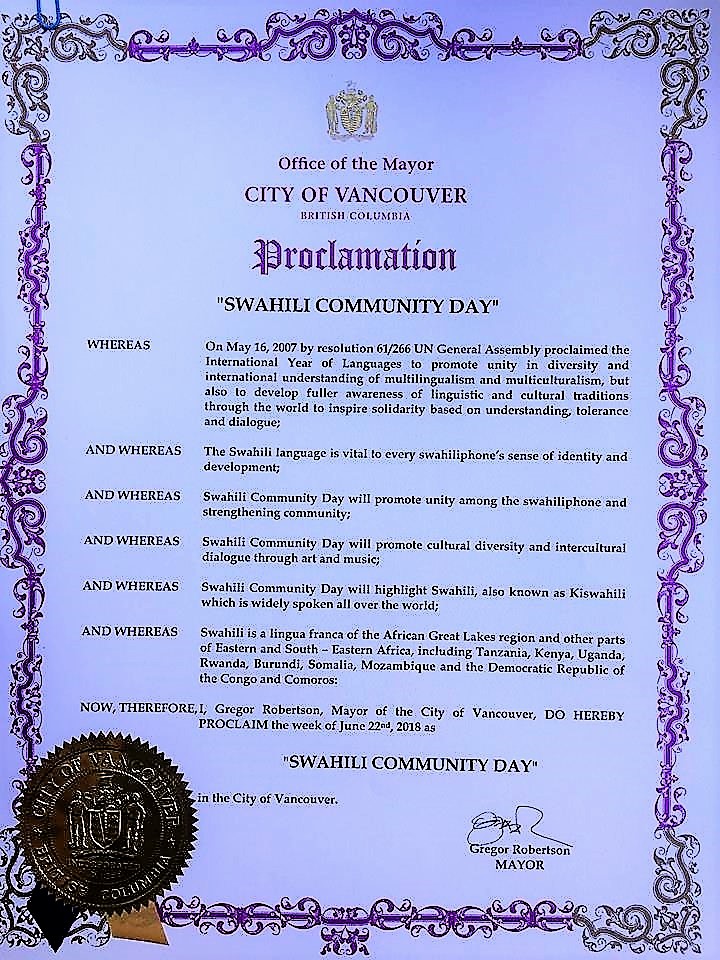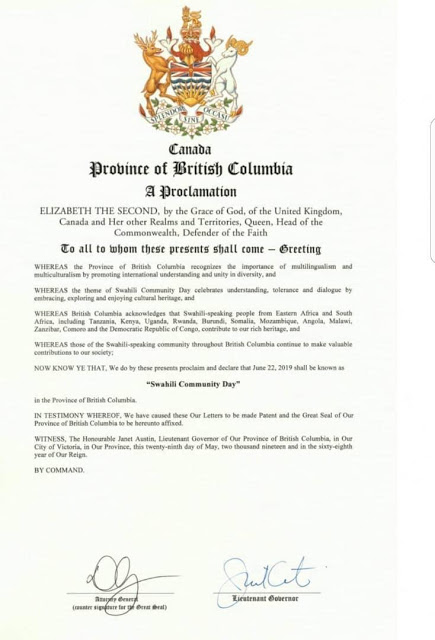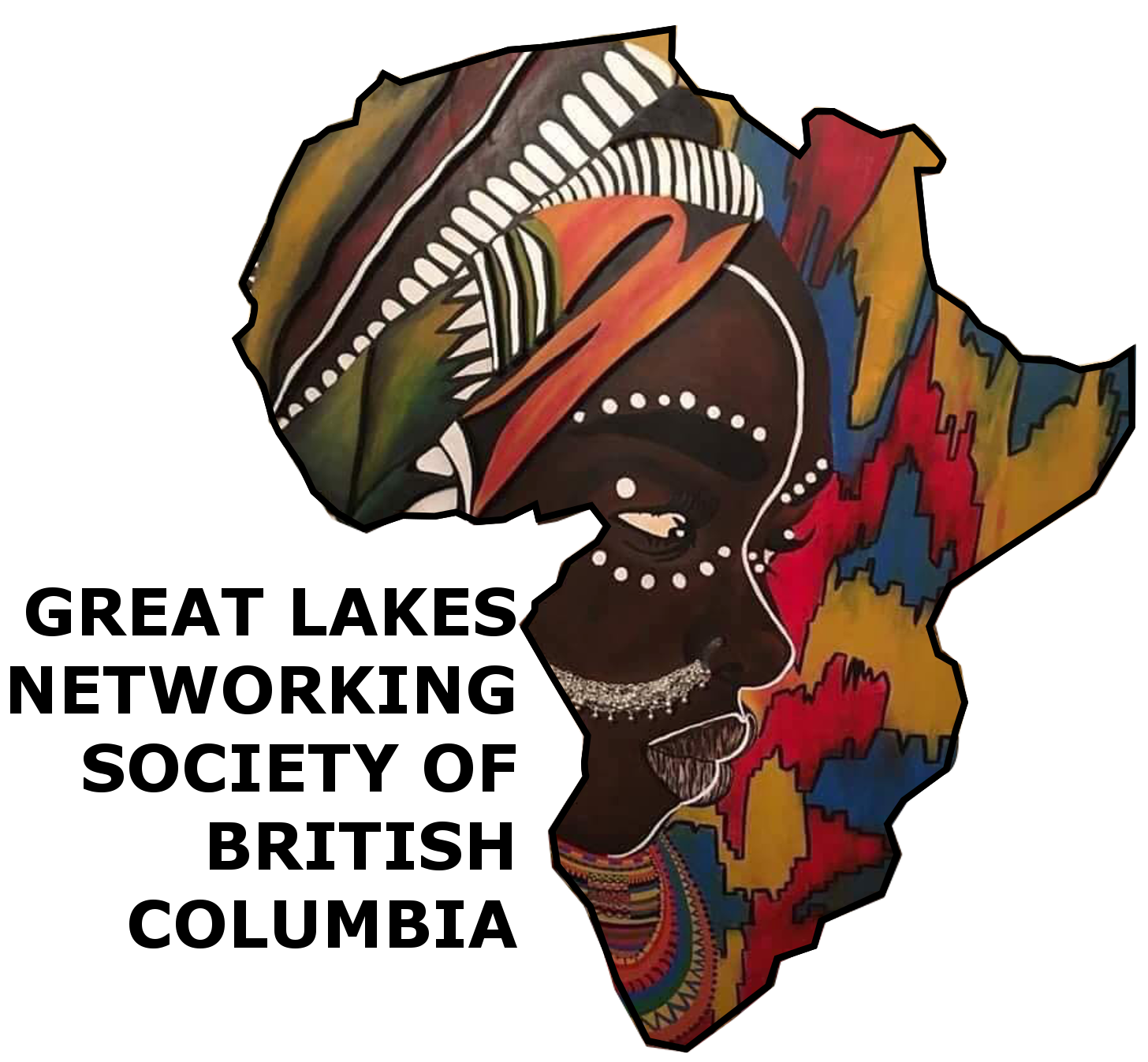Swahili Day Proclamation June 22, 2019
2020-09-24T18:00:25+00:00

Swahili Community Day: Proclamation by Queen Elizabeth the II on June 22/2019, and the
Mayor of Vancouver Gregor Roberson, on June 22 2018
https://snapthatpenny.blogspot.com/2018/06/first-swahili-community-day-in-vancouver.html
Lugha ya Kiswahili, inaimarisha watu (Jumuiya), inakuza mazungumzo ya kitamaduni, anuwai, mazungumzo ya kitamaduni, sanaa, Muziki, michezo, na Umoja)
Languages are important for jobs, for communication between people, for interacting, if you fall in love to visit new countries or with some foreigner, it’s good to know her or his native language. Language is very much important to our culture, it allows us to pass on ideas, knowledge, and even attitudes on to the next generation. “Language allows culture to develop by freeing people to move beyond their immediate experiences”. If we did not have language, we would have very little memories. Swahili is the easiest African language for an English speaker to learn. It’s one of the few sub-Saharan African languages that have no lexical tone, just like in English. It’s also much easier to read as you read out Swahili words just the way they are written. Someone who speaks Arabic may find it easier to learn Swahili because Swahili is a combination of words from Arabic and the Bantu-speaking communities of East Africa. One of the main differences with English is that Swahili uses particles at the beginning of the word to indicate verb tense (present, past, future) and person (I, you, we, they, etc).
Many likely to disappear
According to UNESCO, more than 50 percent of about 7000 languages spoken in the world are likely to die out within a few generations, and 96 percent of these languages are spoken by only four percent of the world’s population. Cultural diversity and intercultural dialogue, the promotion of education for all and the development of knowledge societies are central to UNESCO’s work. But they are not possible without broad and international commitment to promoting multilingualism and linguistic diversity, including the preservation of endangered languages. On May 16, 2007, the UN General Assembly proclaimed 2008 the International Year of Languages after recognizing that multilingualism promoted unity in diversity and international understanding. The assembly also recognized the UN’s commitment to promote, protect and preserve the diversity of languages and cultures globally. Language issues are central to UNESCO’s mandate in education, science, social and human sciences, culture, and communication and information. Therefore, the organization was named the lead agency for the International Year of Languages.
SWAHILI
Tuko kwenye COVID19 pamoja
Huu ni wakati wa busara, sio hofu. Sayansi, sio unyanyapaa. Ukweli, sio hofu na COVID-19 ni adui wetu wa kawaida sasa. Nchi zina jukumu la kusonga mbele, kusonga mbele, na kuongeza kiwango na lazima zitangaze vita dhidi ya virusi hivi. Mlipuko huelekeza nyumbani uhusiano muhimu wa familia yetu ya kibinadamu. Kuzuia kuenea zaidi kwa COVID-19 ni jukumu la pamoja kwa sisi sote.
